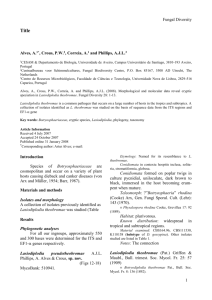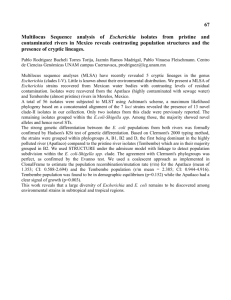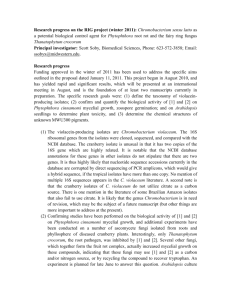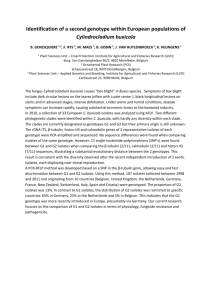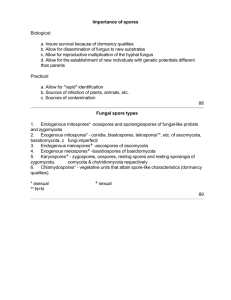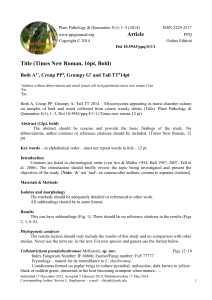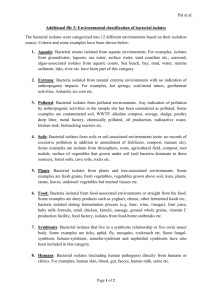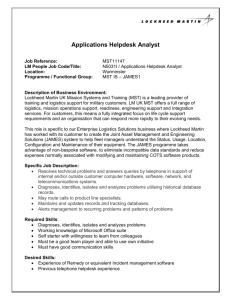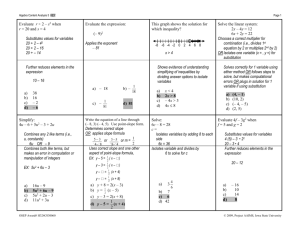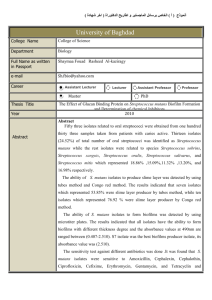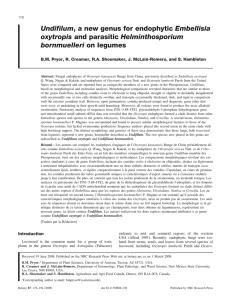Краткий текст
advertisement
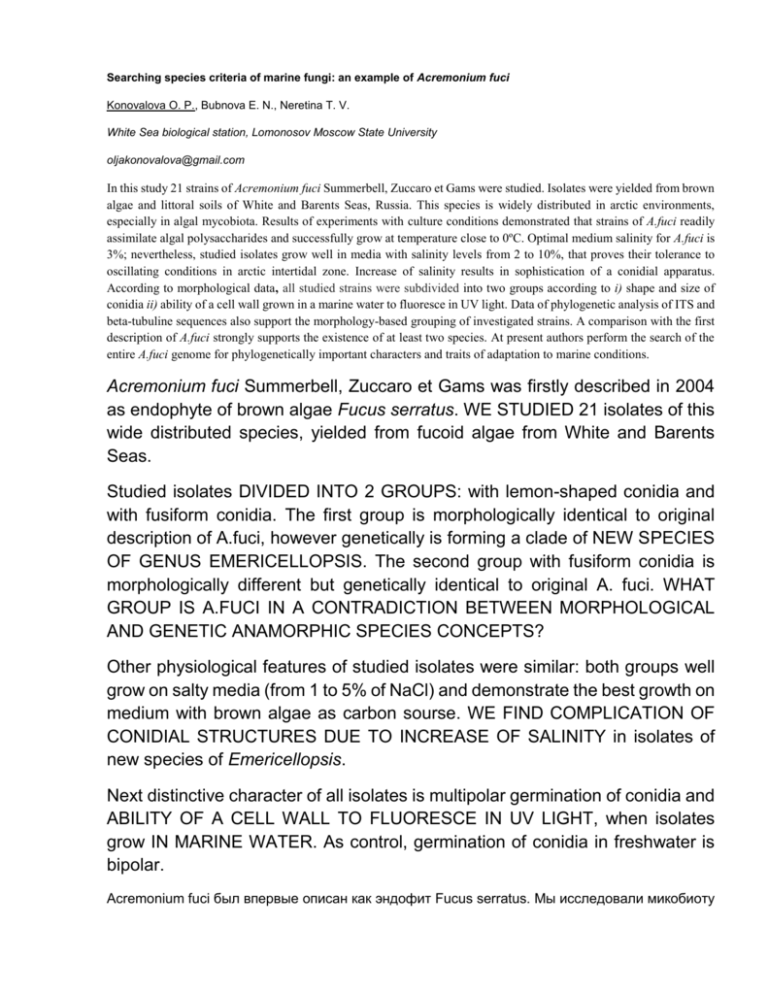
Searching species criteria of marine fungi: an example of Acremonium fuci Konovalova O. P., Bubnova E. N., Neretina T. V. White Sea biological station, Lomonosov Moscow State University oljakonovalova@gmail.com In this study 21 strains of Acremonium fuci Summerbell, Zuccaro et Gams were studied. Isolates were yielded from brown algae and littoral soils of White and Barents Seas, Russia. This species is widely distributed in arctic environments, especially in algal mycobiota. Results of experiments with culture conditions demonstrated that strains of A.fuci readily assimilate algal polysaccharides and successfully grow at temperature close to 0ºC. Optimal medium salinity for A.fuci is 3%; nevertheless, studied isolates grow well in media with salinity levels from 2 to 10%, that proves their tolerance to oscillating conditions in arctic intertidal zone. Increase of salinity results in sophistication of a conidial apparatus. According to morphological data, all studied strains were subdivided into two groups according to i) shape and size of conidia ii) ability of a cell wall grown in a marine water to fluoresce in UV light. Data of phylogenetic analysis of ITS and beta-tubuline sequences also support the morphology-based grouping of investigated strains. A comparison with the first description of A.fuci strongly supports the existence of at least two species. At present authors perform the search of the entire A.fuci genome for phylogenetically important characters and traits of adaptation to marine conditions. Acremonium fuci Summerbell, Zuccaro et Gams was firstly described in 2004 as endophyte of brown algae Fucus serratus. WE STUDIED 21 isolates of this wide distributed species, yielded from fucoid algae from White and Barents Seas. Studied isolates DIVIDED INTO 2 GROUPS: with lemon-shaped conidia and with fusiform conidia. The first group is morphologically identical to original description of A.fuci, however genetically is forming a clade of NEW SPECIES OF GENUS EMERICELLOPSIS. The second group with fusiform conidia is morphologically different but genetically identical to original A. fuci. WHAT GROUP IS A.FUCI IN A CONTRADICTION BETWEEN MORPHOLOGICAL AND GENETIC ANAMORPHIC SPECIES CONCEPTS? Other physiological features of studied isolates were similar: both groups well grow on salty media (from 1 to 5% of NaCl) and demonstrate the best growth on medium with brown algae as carbon sourse. WE FIND COMPLICATION OF CONIDIAL STRUCTURES DUE TO INCREASE OF SALINITY in isolates of new species of Emericellopsis. Next distinctive character of all isolates is multipolar germination of conidia and ABILITY OF A CELL WALL TO FLUORESCE IN UV LIGHT, when isolates grow IN MARINE WATER. As control, germination of conidia in freshwater is bipolar. Acremonium fuci был впервые описан как эндофит Fucus serratus. Мы исследовали микобиоту фукусовых водорослей в Белом и Баренцевом морях (WSBS and MMBI) и обнаружили, что этот вид широко распространен в микобиоте грунтов и водорослей. Однако изоляты значительно отличались морфологически: большинство изолятов имеют конидии палочковидной формы (L/W=4), несколько – лимоновидной или почти шаровидной (L/W=1,5-2), что соответствует первоописанию )ПОДПИСАТЬ НА КАРТИНКАХ РАЗМЕРЫ И СООТНОШЕНИЕ). Только благодаря молекулярной идентификации по участку ITS мы установили, что все эти изоляты относятся к виду Acremonium fuci. Тем не менее, при исследовании внутривидовой филогении по генам LSU и тубулину (ПРИСОБАЧИТЬ КАРТИНКИ С КОНИДИЯМИ НА ДРЕВО), происходит четкое разделение изолятов в полном соответствии с морфологическими отличиями. Вся соль в том, что именно изоляты с палочковидными конидиями генетически полностью идентичны голотипу вида, а изоляты, морфологически сходные с описанием A.fuci, образуют отдельную кладу и относятся к новому для науки виду. Описание новых видов морских грибов – достаточно распространенное явление, но вопрос в том, каковы же критерии вида в таких противоречивых ситуациях. Мы решили подробным образом исследовать другие признаки 21 целевого изолята.
